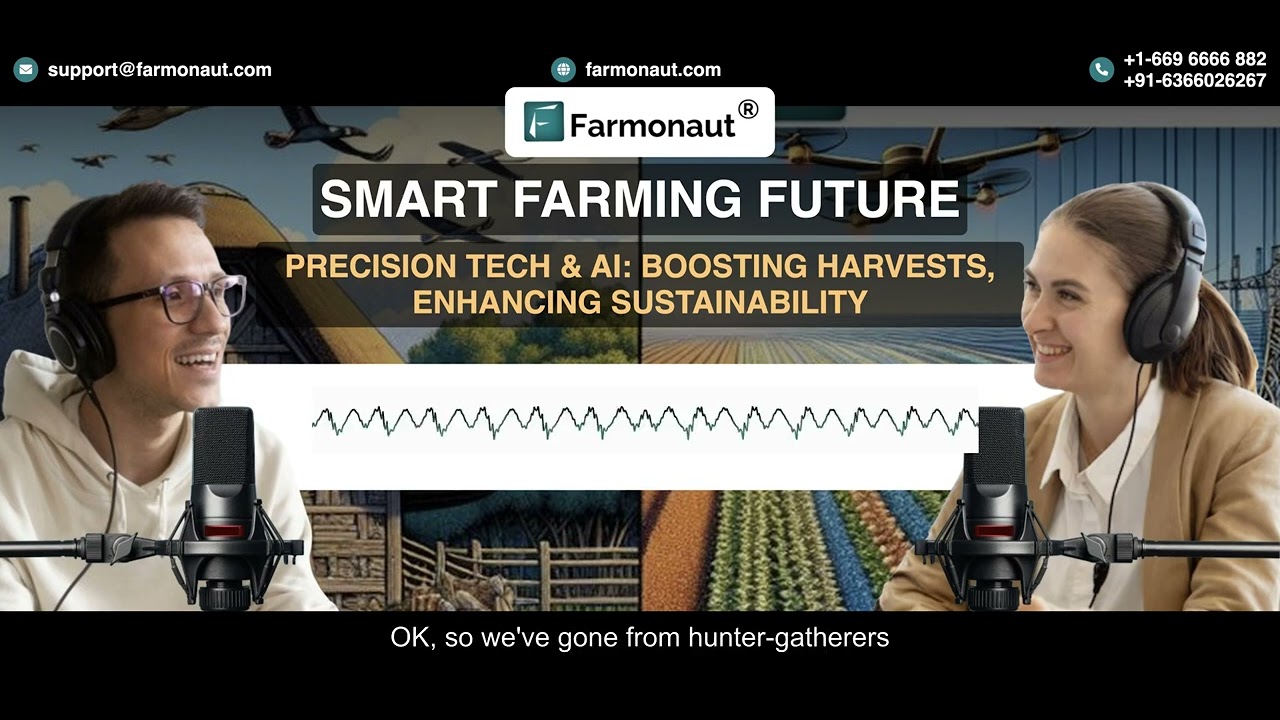Horticulture Degrees Near Me: Top 10 Powerful Programs 2026
“Over 60% of top horticulture programs include courses in sustainable agriculture and environmental management by 2026.”
Introduction: Why Horticulture Degrees Matter in 2026
Horticulture degrees are rapidly becoming crucial educational assets in 2026’s global agri-food sector. As the world’s food security, urban landscapes, and environmental conservation efforts are increasingly challenged, expertise in horticulture, sustainable agriculture, and agriculture business is in high demand. Whether you are a high school graduate, a working professional looking to upskill, or an industry veteran, pursuing specialized degrees in horticulture empowers you to lead, innovate, and drive significant transformations within the fields of plant science, crop management, and business.
The search for horticulture degrees near me now produces an expansive list of both traditional classroom programs and comprehensive online horticulture degrees from accredited universities and agricultural colleges. These programs provide not only theoretical knowledge but also practical, hands-on training, and frequent collaborations with local farms, botanical gardens, and agricultural enterprises. For those interested in flexible and remote learning solutions, advancements in technology have made online horticulture degrees as sophisticated and effective as their on-ground counterparts, featuring interactive virtual labs, real-time projects, and AI-driven learning modules.
In this blog, we explore:
- The core value of horticulture and related degree programs
- How new learning models, including online study, are reshaping education in horticulture, sustainable agriculture, and business
- The top 10 horticulture programs near you for 2026, compared side-by-side
- Emerging technology—such as satellite monitoring and AI advisory—empowering tomorrow’s agricultural professionals (with Farmonaut insights)
- Key career paths, industry trends, FAQs and more!
What is Horticulture? Understanding the Field for Today’s Students
Horticulture is the science and art of cultivating plants and plays an essential role in agriculture, forestry, landscaping, crop production, food security, ornamental gardening, and environmental management. In practice, horticulture spans:
- Plant physiology and genetics
- Soil science and conservation
- Pest and disease management
- Nursery operations
- Landscape and urban design
- Fruit, vegetable, floral, and ornamental plant production
- Sustainable and organic farming methods
- Environmental management and climate-smart practices
Students enrolling in horticulture degrees (Bachelor’s, Master’s, Diploma, Certification) acquire specialized skills, preparing them for roles in:
- Industrial agriculture and food production
- Research and development
- Sustainable flori- and landscaping industries
- Consulting and extension services
- Education and policy development
Why Horticulture Degrees Are Vital in 2026 & How to Find Programs Near You
In 2026, global food systems, local economies, and environmental resilience are all propelled by the efforts of skilled horticulturists. The push for sustainable, efficient resource management means today’s agricultural sectors are witnessing significant transformations—and the need for advanced horticulture degrees is rising sharply. Whether you’re searching for “horticulture degrees near me” or exploring national and international study options, the trends shaping horticulture education include:
- Growing demand for multidisciplinary skills spanning crops, pest management, and environmental sustainability
- Increasing emphasis on regenerative, climate-smart agriculture
- The integration of business, economics, and value chain knowledge alongside scientific expertise
- Local and regional adaptation: Many programs tailor curriculum to address nearby farms’, soil conditions, and climatic challenges
- Wider access through online and hybrid learning, making education more flexible and accessible than ever
How to find the best horticulture degrees near you? Start by identifying:
- Accredited universities & specialized colleges
- Flexible and online options for working professionals and rural learners
- Programs featuring hands-on internships, local research projects, and industry collaborations
- Specialized tracks: sustainable agriculture degrees, horticulture floriculture, agriculture business degrees
Top 10 Horticulture Degrees Near Me: 2026 Comparison Table
To help aspiring students and professionals compare horticulture degrees efficiently, we present a comprehensive table with the top 10 programs for 2026. These programs cover a wide range of specializations—including plant science, sustainable agriculture, soil management, floriculture, agri-business, and more—across a mix of local, national, and online universities and colleges.
Quick Comparison Table for Top 10 Horticulture Degree Programs in 2026
| Program Name | Location (State/Region) | Degree Type | Estimated Duration (Years) | Average Tuition (USD/year) | Core Focus Areas | Mode of Delivery | Graduate Employment Rate (%) |
|---|---|---|---|---|---|---|---|
| BSc Horticulture Science | California, USA | Bachelor’s | 4 | $13,500 | Plant Physiology, Pest Mgt, Crop Production | On-Campus | 89% |
| Diploma in Ornamental Horticulture | Ontario, Canada | Diploma | 2 | $7,000 | Floriculture, Landscaping, Soil Science | Hybrid | 83% |
| Online Horticulture & Sustainability | Remote/Global | BSc/Certificate | 3-4 | $9,800 | Sustainable Agriculture, Technology, Crop Mgt | Online | 86% |
| MSc Plant Sciences & Business | Iowa, USA | Master’s | 2 | $14,500 | Business, Crop Science, Management | On-Campus | 92% |
| Agri-Environmental Horticulture | Bavaria, Germany | Bachelor’s | 3 | $4,900 | Ecosystems, Pest Control, Forestry | Hybrid | 81% |
| BSc Sustainable Agriculture | Queensland, Australia | Bachelor’s | 4 | $10,700 | Soil Conservation, Crop Research, Organic Systems | On-Campus | 87% |
| Certificate in Horticultural Technology | Texas, USA | Certificate | 1 | $5,500 | Greenhouse, Hydroponics, Precision AgriTech | Online | 80% |
| BSc Urban Agriculture & Landscape Design | London, UK | Bachelor’s | 3 | $12,200 | Landscaping, Urban Farming, Business | Hybrid | 85% |
| Forest & Agroforestry Management | Karnataka, India | Diploma | 2 | $2,900 | Soil, Forest Crops, Agroforestry Economics | Hybrid | 77% |
| Sustainable Crop Production Online | Remote/Global | Diploma | 2 | $6,600 | Crop Science, Sustainability, Virtual Labs | Online | 78% |
“In 2026, at least 7 out of the top 10 horticulture degrees offer fully online learning options.”
A Deep Dive: Examining the Best Horticulture Programs in 2026
1. BSc Horticulture Science – California, USA
If you’re searching for “horticulture degrees near me” in the western United States, California’s top universities offer robust BSc Horticulture Science programs. Students benefit from:
- Focus on plant physiology, pest management, crop production, and biotechnology
- Extensive on-campus research facilities and greenhouses
- Active collaborations with nearby farms, botanical gardens, and environmental agencies
These degrees are tailored to address local soil and climatic conditions, equipping graduates to solve California’s unique crop challenges and contribute effectively to both the local and global industries.
2. Diploma in Ornamental Horticulture – Ontario, Canada
Ontario colleges provide comprehensive coverage of floriculture, soil science, and landscape design. Students gain:
- Practical experience via nearby nurseries, parks, and landscaping firms
- Strong ornamental plant production and pest management skills
- Courses specifically addressing sustainable and local conditions
3. Online Horticulture & Sustainability – Remote/Global
Online horticulture degrees are becoming increasingly attractive due to accessibility and flexibility, allowing students from any region to:
- Balance career, family, and study with customizable schedules
- Engage in interactive virtual labs, AI-assisted modules, and personalized learning paths
- Participate in global research projects and industry collaborations online
Many online degrees feature mentorship programs and direct connections to local agro-enterprises for research internships.
4. MSc Plant Sciences & Business – Iowa, USA
This program uniquely blends agriculture business degrees with deep scientific training. Students master:
- Crop science and agri-business management
- Value chain analysis and rural entrepreneurship
- Preparation for both research and business leadership roles
5. Agri-Environmental Horticulture – Bavaria, Germany
Germany’s eco-focused programs combine:
- Sustainable landscape management
- Integrated pest control and forestry systems
- International research collaborations, especially in environmental conservation
Special Focus: Certificate in Horticultural Technology – Texas, USA (Online)
This online course is ideal for learners seeking to upskill quickly. Focus areas include:
- Greenhouse and hydroponic system management
- Precision agriculture technology
- Practical experience through remote internships
Online Horticulture Degrees: The Flexible Future of Plant Science Education
Online horticulture degrees are no longer an afterthought for agricultural training. The year 2026 sees:
- At least 7 out of 10 leading horticulture programs offering fully online or hybrid delivery (see comparison table above)
- Students balancing ongoing careers, internships, and learning in real-time from remote or rural areas
- Interactive modules, AI-based assessments, and virtual research collaborations
- Access to global faculty and diverse problem-solving opportunities, involving soil variations, climatic regions, and pest profiles
Many online horticulture degrees provide:
- High-quality digital simulations and virtual labs
- Online mentorship and peer group projects
- Personalized learning modules for maximum flexibility
Sustainable Agriculture Degrees: Building Resilience & Environmental Management
Sustainable agriculture degrees are central to addressing climate change and resource scarcity. Programs in 2026 are designed to:
- Train students in soil health, conservation methods, and eco-friendly crop practices
- Deepen understanding of integrated pest management and renewable energy in farming
- Promote organic agriculture and regenerative farming models
- Provide hands-on learning with local and international research projects
Choosing sustainable agriculture as a specialization ensures that graduates:
- Lead innovation in climate-resilient farm practices
- Contribute to food security and low-impact production
- Support farmers and businesses in adopting future-ready business models
Tip: Want to enhance climate-smart farming practices right away? Explore Farmonaut’s carbon footprinting tools—they help track environmental impact and support sustainable agricultural management, from large-scale farms to local enterprises.
Agriculture Business Degrees: Blending Science, Management & Market Strategies
For those interested in the commercial and management side of agriculture, agriculture business degrees in 2026 offer career-oriented pathways that combine:
- Crop production science with economics and rural entrepreneurship
- Farm and resource management
- Market strategy, value addition, and agricultural finance
- Digital agri-business and global supply chains
Graduates are prepared to:
- Bridge the gap between agricultural production and market demands
- Innovate in food logistics, startup management, and export industries
- Lead in policy, economic development, and rural sector entrepreneurship
Resource: If you’re pursuing agriculture business or sustainable farming, check out Farmonaut’s crop loan & insurance verification solutions for satellite-based risk assessment—helpful for both future farm managers and financial professionals in the sector.
Floriculture’s Place in Modern Horticulture Degrees
Floriculture—the science and business of cultivating ornamental plants and flowers—is one of the fastest-growing subfields within horticulture degrees today. Modern programs now offer:
- Specializations in greenhouse management, plant breeding, and landscape design
- Training for urban and indoor garden systems
- Internships with local landscaping firms, environmental consultancies, and city park authorities
As cities expand and demand eco-friendly, beautiful green spaces, expertise in floriculture is rising sharply. Students gain practical skills for working with local gardens, remote research projects, and even international flower industries.
Tip: Learn more about traceability and transparency in the global ornamental plant sector with Farmonaut’s blockchain product traceability tools—they support responsible sourcing and management across enterprise-scale horticulture floriculture networks.
Technology, Satellite Solutions & Innovation in Horticulture Education
Technology is driving every aspect of agriculture and horticulture education. In 2026, leading degree programs integrate:
- Satellite-driven remote monitoring and data-driven resource management
- AI-powered advisory systems
- Blockchain for secure and transparent agricultural business operations
- Fleet and asset management for large-scale crop production
- Virtual and augmented reality for experiential learning
As educational resources become increasingly sophisticated and accessible, students in both on-campus and online programs benefit from greater flexibility and a wider range of career opportunities.
API for Developers: For institutions and businesses considering customized horticulture management tools, Farmonaut offers API access for integrating satellite data and insights as well as detailed documentation for API development.
Career Pathways After Horticulture Degrees: Preparing for Industry Trends
Upon graduation, students from horticulture and sustainable agriculture programs are positioned for a wide array of career paths, including:
- Crop and greenhouse managers
- Landscape designers and urban planners
- Plant breeders and geneticists
- Floriculture and ornamental production specialists
- Agribusiness executives and rural entrepreneurs
- Environmental consultants and conservationists
- Research scientists—local and international research organizations
- Policy advisors and extension educators
As global demand for food security, efficient production, and climate-resilient farming increases, these roles are evolving rapidly. Advanced technologies, such as those pioneered by Farmonaut (see below), are also opening up new jobs in satellite data interpretation, digital farm management, and AI-powered advisory.
Interested in large-scale field management? Explore Farmonaut’s large scale farm management solutions—ideal for tech-savvy graduates entering agri-enterprises.
Farmonaut Insights: Technology’s Role in the Future of Horticulture Education
As a satellite technology company, we at Farmonaut provide a unique perspective for students and educators pursuing horticulture and agriculture degrees in 2026:
- Our real-time satellite-based monitoring of crops and soil conditions helps practitioners and researchers make data-backed decisions across global regions and climatic zones.
- Through AI advisory, we offer predictive insights and tailored crop strategies, benefitting students in both traditional and online horticulture degrees.
- Our blockchain traceability solutions enable future agribusiness managers to ensure transparency, security, and sustainability across increasingly complex supply chains.
- We offer APIs and developer tools for further innovation, supporting teaching institutions and agritech startups involved in modernizing education.
Our mission is to make satellite-driven insights affordable and accessible for businesses, users, and governments—empowering a new generation of skilled horticulturists and managers.
Explore Farmonaut’s fleet and resource management tools if you are focused on logistics, equipment use, and efficient operations in large farms or research projects.
Frequently Asked Questions (FAQ) about Horticulture Degrees in 2026
1. What are the benefits of studying horticulture degrees in 2026?
Horticulture degrees provide a multidisciplinary education in plant science, crop management, business, and environmental resilience. Graduates can solve local and global agricultural challenges, pursue innovative research, and enter fast-growing fields such as sustainable agriculture, crop consulting, landscaping, flori-business, and agri-tech management.
2. Are online horticulture degrees as valuable as on-campus programs?
Yes—online horticulture degrees now feature interactive labs, AI-based personalized learning, and research collaborations. Many top universities offer fully online or hybrid modes, allowing flexibility and accessibility without compromising practical skills or career prospects.
3. What’s the difference between horticulture, sustainable agriculture, and agriculture business degrees?
Horticulture degrees focus primarily on plant science, production, and management. Sustainable agriculture degrees emphasize eco-friendly practices, resource conservation, and climate adaptation. Agriculture business degrees blend scientific knowledge with management, economics, and market dynamics, preparing students for leadership and entrepreneurship roles.
4. How do satellite and AI technologies benefit horticulture students and educators?
Technologies such as satellite monitoring, AI advisory, and blockchain traceability enhance education by providing real-time data for research, crop management, and resource planning. Students gain experience with the same digital tools used by leading agri-businesses, increasing employability and industry readiness.
5. Which sectors employ graduates of horticulture and sustainable agriculture programs?
Graduates can find roles in crop science, greenhouse management, landscaping, plant breeding, agri-business, rural economic development, urban planning, extension education, floriculture, and environmental consultancy, among many others.
6. What financial support or scholarships are available for horticulture degrees?
Many accredited universities and colleges offer need-based scholarships, research fellowships, and grants for students in horticulture, sustainable agriculture, and agribusiness programs. Check individual program websites for up-to-date information and application procedures.
Conclusion: Choosing the Best Horticulture Program in 2026
Whether you’re a recent graduate, working professional, or career shifter, horticulture degrees—whether traditional classroom, hybrid, or online horticulture degrees—provide comprehensive education in plant science, sustainable practices, and agriculture business management. These programs are increasingly vital for aspiring industry leaders, researchers, and entrepreneurs striving to innovate and make an impact on food security, environmental conservation, and economic growth.
Remember to:
- Research accredited degree options near you, considering both on-campus and digital learning opportunities
- Prioritize programs with strong practical training and local collaborations (farms, gardens, agro-enterprises)
- Leverage satellite monitoring, AI, and blockchain tools to stay ahead in modern agri-business
Explore these resources to start your journey:
- Consult our comparison table above for top 2026 horticulture degrees
- Visit Farmonaut’s app for solutions in sustainable farming and field monitoring
- Experiment with carbon footprinting and blockchain traceability solutions as you learn
- Apply your skills in real industry projects and research collaborations—on campus, online, or with farm management tools like Farmonaut Agro-Admin App
The opportunities to build comprehensive understanding have never been more accessible.
Ready to join the next generation of global leaders in horticulture, agriculture, and sustainability? Choose your program, seize your opportunity, and get started today!


















